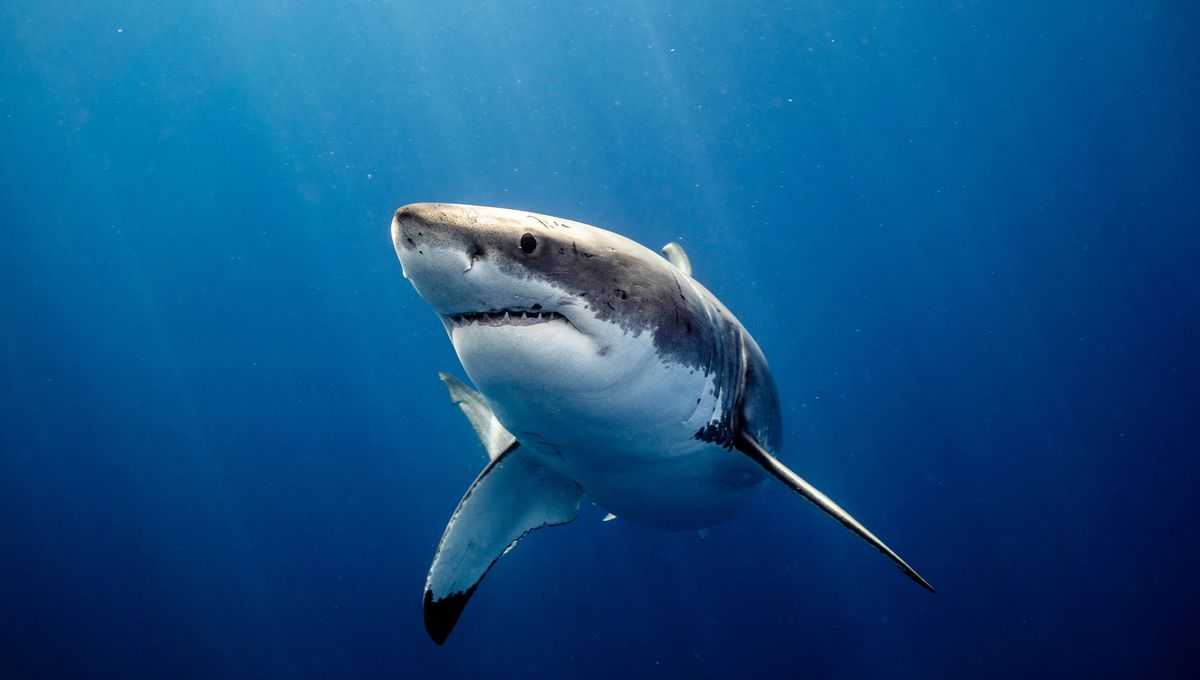
Contrary to what many of us thought, great white sharks are not made up of a single species but are actually separated into three distinct populations that inhabit different parts of the world’s oceans. The results raise concerns for conservationists, as it seems these distinct populations rarely interbreed.
The discovery was made by an international team of scientists who applied new advanced genome analysis to white sharks from around the world. They found that the three distinct geographic lineages separated between 100,000 and 200,000 years ago, during the Penultimate Glacial Period, and each inhabits waters in the south Pacific Ocean (Indo-Pacific), northern Pacific Ocean, and in the North Atlantic and Mediterranean, respectively.
Despite their global distribution, previous research into the molecular population of white sharks has been limited to opportunistic sampling from single ocean basins or regions. In addition, most of these relied on an analysis of “microsatellites”, repetitive segments of DNA that repeat multiple times at specific points in a genome, and small fragments of the mitochondrial control region, which controls RNA and DNA synthesis.
However, the focus on these markers created a confusing picture that appeared to be unhelpful for understanding recent connectivity between white shark populations. As such, the researchers in this study turned to high-resolution genome-wide markers – something called single-nucleotide polymorphisms (SNPs) – which provided a reliable and reproducible image of the situation that revealed the three distinct lineages.
This discovery is more than a curiosity about an (in)famous marine species – it also highlights a significant conservation problem.
Crucially, the researchers found that the sharks do not interact with those from other populations. This means the global population of white sharks is actually at a greater risk of extinction than previously thought, as a loss in any lineage is unlikely to be recovered through interbreeding.
“If all the white sharks belonged to a single large, integrated global population, it would not matter so much if they vanished from a specific area,” Dr Catherine Jones, the study’s lead researcher at the University of Aberdeen, explained in a statement.
“But if white sharks comprise separate genetically distinct populations, such as in the Mediterranean, and this were lost, unique genetic diversity would also be lost.”
The research demonstrates the need to understand the distribution and health of these different groups of sharks if they are to be protected in the future.
“Successful conservation requires recognition of management units, but this has been unavailable for white sharks, which were suspected to exist as a single global population,” Les Noble, Professor of Aquatic Biosciences at Nord University in Norway, added.
“Although not widely appreciated man’s future is increasingly bound up with that of white sharks. As top predators they play a crucial role in maintaining the health and diversity of local marine ecosystems which are responsible for 20 percent of protein in our diet. In the last 50 years white shark abundance has almost halved, and it is recognized as critically endangered in Europe.”
If recent forecasts are correct, then we may see changes in the strength and direction of the major ocean currents within the next 50 years. If this happens, then it could lead to the breakdown of the geographic boundaries between these shark lineages, which could lead to more unproductive mating, further endangering white sharks along with the overall diversity, health, and productivity of the world’s oceans.
“It has long been considered that sharks lost from one area would be compensated for with the movement and matings of sharks from other locations. Our findings suggest this is clearly unlikely and this, together with bycatch fishing, depletion of their food reserves, pollution, and poaching, could put this iconic apex predator in real danger of extinction,” Jones concluded.
The study is published in Current Biology.
Source Link: Great White Sharks Form 3 Distinct Groups, And That Could Spell Trouble For Their Survival